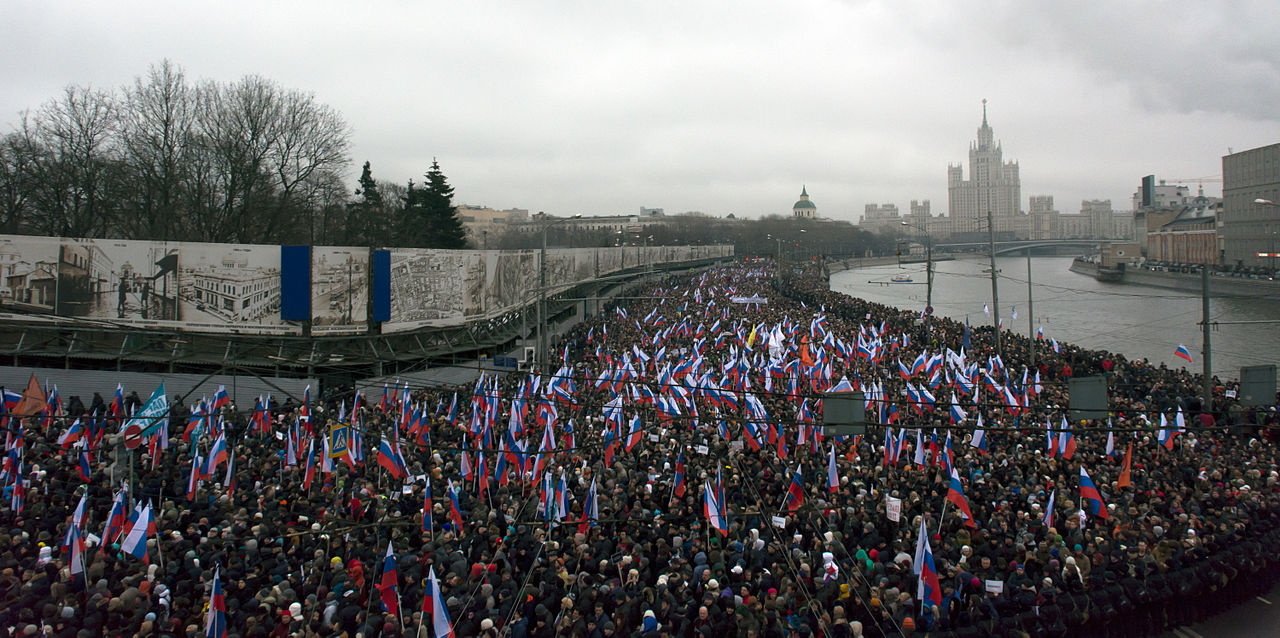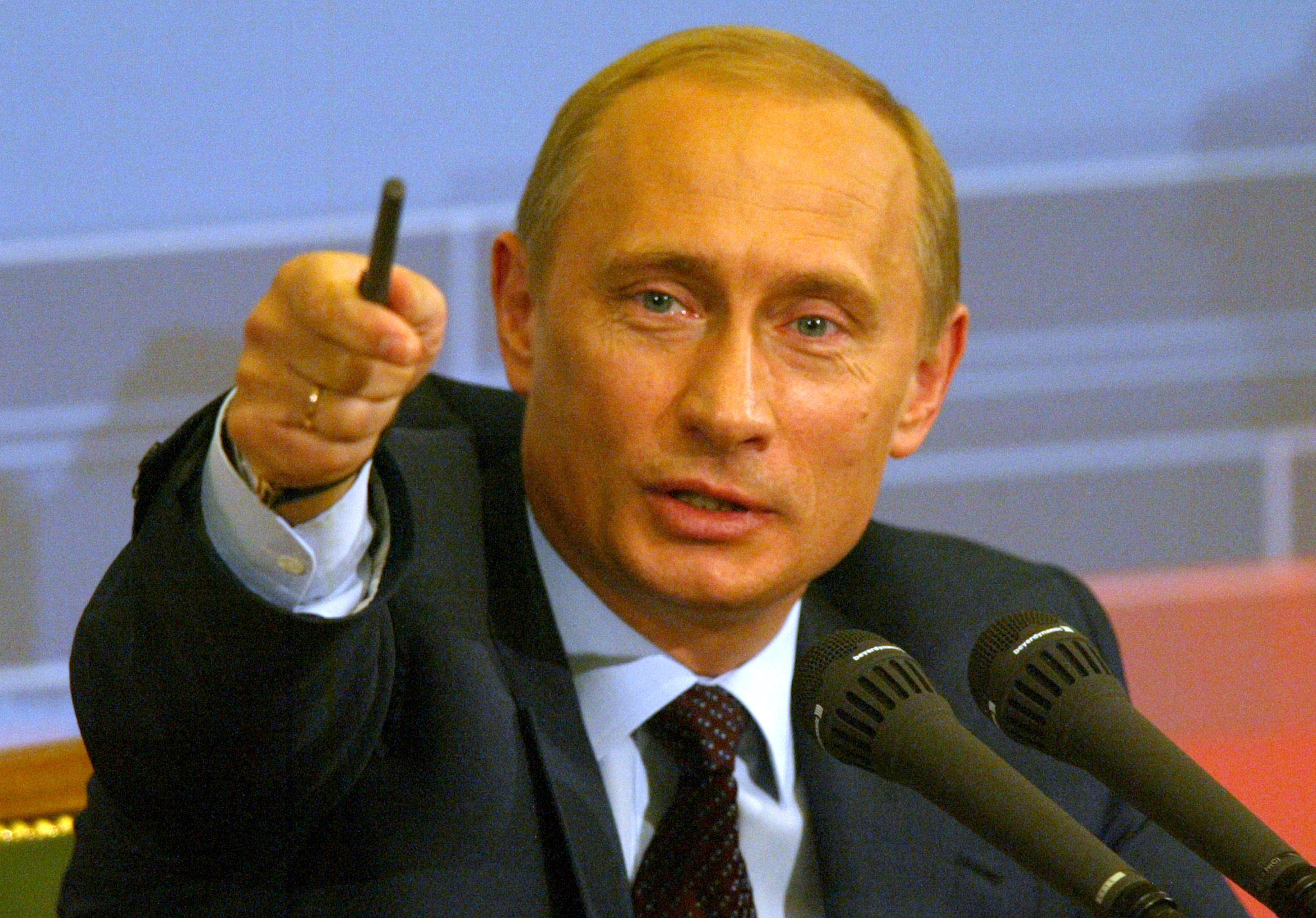Overthe past year U.S.-Russia relations have tanked so hard and so quickly that you’d almost think Putin must be doing it on purpose. Beginning by granting asylum to Edward Snowden, Putin has gone out of his way to spurn the United States. The takeover of Crimea put Russia in the spotlight, and showed Russia moving forward with policies the West found unacceptable. In retaliation, the West imposed heavy sanctions on Russia. During these confrontations Putin has been consolidating power, slowly leading the U.S. toward a trap that could irreparably harm relations between the two nations.
Opposition party leader Boris Nemtsov was murdered at the end of February in the most recent of a series of alleged wrongdoings by Russia. While Putin has condemned the murder, many believe that foul play on the part of the Kremlin could have been involved, as Nemtsov was a very vocal opponent of a government that doesn’t deal well with criticism. Nemtsov was a former government official who fell out of favor with the Putin administration and was forced out of the government. Since the Ukraine crisis, Nemtsov had been vital in organizing protests against Russia’s role in the conflict, and had actually stated in an interview months before his murder that he feared Putin would kill him for opposing the war in Ukraine. His murder took place near the Red Square itself, which is at the center of Russia’s capital. Further adding to suspicions is the fact that a Kremlin security camera was pointed directly at the place of the murder, but the footage from this camera hasn’t been given to the investigation. This is far from the Kremlin holding a smoking gun, however, as many alternate explanations exist. Putin’s favored explanation is that Nemtsov was murdered by his own followers to make a martyr of him and unite the opposition movement. In a recent speech, Obama used this killing to reinforce his opinion that “basic civil rights and civil liberties inside of Russia are in much worse shape now than they were four or five, ten years ago.”
Over the past several months the Russian economy has declined alarmingly. The ruble has lost 50 percent of its value, leading to a projected loss of five percent of Russia’s GDP this year. A major reason for Russia’s economic woes is the combination of dropping oil prices with the country’s dependence on oil exports. In addition, the E.U. and U.S. have fought an economic war to undermine Russia’s economy, and sanctions imposed following the Ukraine crisis have certainly had an impact. In his State of the Union address last month Obama proclaimed those sanctions a success, saying that “Russia is isolated with its economy in tatters.”
But while the White House and the E.U. may be touting this as a victory, it could have negative consequences. The Russian economy was already going downhill due to inflation and decreasing oil prices, but the sanctions have given Putin a scapegoat. By blaming the sanctions on foreign countries, Putin can increase his own power at home.
In December Putin made an alarmist speech in which he not only blamed the United States for Russia’s economic woes, but actually insinuated that the U.S. is threatening Russia’s existence. Invoking the Russian symbol of the bear to justify the Kremlin’s expansionist actions, he stated:
Sometimes I think, maybe it would be better for our bear to sit quiet, rather than chasing around the forest after piglets. To sit eating berries and honey instead. Maybe they will leave it in peace. They will not. Because they will always try to put him on a chain, and as soon as they succeed in doing so they tear out his fangs and his claws… Once they’ve taken out his claws and his fangs, then the bear is no longer necessary. He’ll become a stuffed animal, the issue is not Crimea, the issue is that we are protecting our sovereignty and our right to exist.
This Winnie-the-Pooh-esque imagery belies the significance of the pressures behind Putin’s words. Russians are certainly beginning to feel the pain of the rough economy. Grocery stores have been forced to freeze prices after produce prices climbed over 300 percent. Several times in the past year Putin publicly announced that the West is to blame for many of Russia’s economic problems.
Germany and France have been promoting diplomatic solutions, and will be meeting soon to discuss the conflict with Russia and Ukraine. To many, however, their solutions seem like appeasement.
With the U.S. considering arming anti-Russian rebels and Russians purportedly assisting pro-Russians in the region, Ukraine could easily become the site of a modern proxy war reminiscent of the Cold War. Relations between two of the largest and most powerful nations in the world have swiftly crumbled after an unsteady period of peace. Russia is pushing all of the West’s buttons, allegedly calling hits on opposition, taking territory from a sovereign nation, and consolidating power in a president who has led for so many terms that some characterize his reign as undemocratic, made possible only by a loophole. The West is very divided on the strategy it wants to take moving forward (see our analysis of the discussion here), while Russia’s plans are veiled in secrecy. In a game in which the players control the world’s largest nuclear stockpiles, it is clear that Putin is taking a lot of risks. What’s less clear is his end goal.
– By Alex Duncan/Photo Credit: Wikimedia Commons, Dharmikatwa


